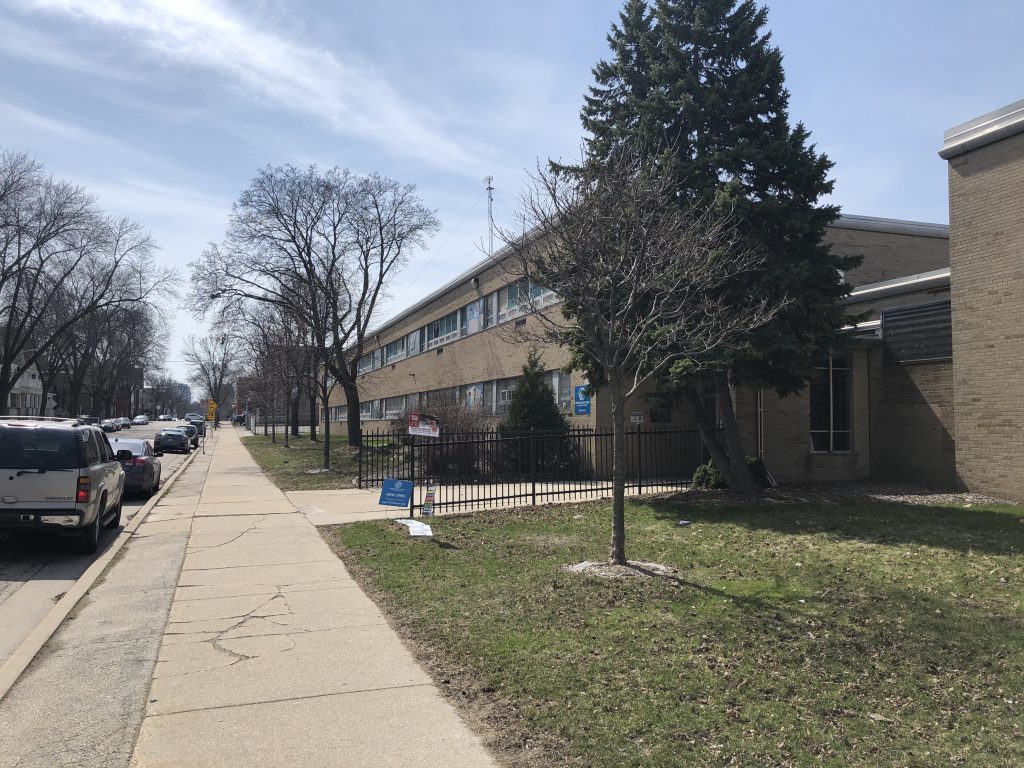Will ‘Science of Reading’ Improve Learning?
Passage of Act 20, emphasis on phonics, may be too restrictive.
“We want high quality reading,“ said Tonya Evans, district reading curriculum specialist, at a Milwaukee school board meeting on August 29.
Milwaukee Public Schools (MPS) has a tall mountain to climb when it comes to its students’ reading proficiency. Only 9% of 4th graders and 14% of 8th graders in MPS were considered proficient readers in 2022, as Wisconsin Watch reported.
MPS was not the only Wisconsin school district to see a major drop in reading proficiency, but it was among the worst. Blame can be directed at the disruption in education during the pandemic, but Wisconsin legislators saw failings in reading instruction and pushed for the “science of reading” in passing a new law, Act 20. They argued that too little reading instruction was phonics-based. Instead, teachers relied on a “three-cue” system, where students grasp the meaning and sound of words by looking at three possible cues: 1. Semantic (word meaning and sentence context); 2. Syntactic (grammatical features); and 3. Graphophonic (letters and sounds)
The three-cue system has flaws, Evans pointed out. A student might see a sentence which says “There are many trees in the forest,” but doesn’t know that the last word is “forest.” They guess and say “in the woods.” They got the meaning right, but substituted the wrong word because they have so little phonetic understanding.
Act 20 mandated a phonics-based approach to reading and all but outlawed the three-cue system. “The three-cues was a sticking point for the Democrats” says Democratic state representative Christine Sinicki, who represents parts of Milwaukee, St. Francis and Cudahy. She is also a former MPS school board director. “The Democrats felt that the Republicans were banning other tools which teachers felt were going to work with a child. Some kids learn through the three-cues,” she told Urban Milwaukee. The majority of Democratic legislator voted no, but the Republicans had the votes. Governor Tony Evers signed the bill when the Legislature dropped a provision that a third-grader who did not meet proficiency would have to repeat third grade.
Act 20 allocated $50 million for reading implementation, but Sinicki said that the allocation short changed Milwaukee. “MPS would not even get close to what they needed in literacy coaches.” Sinicki also questions legislators injecting themselves into the details of educational instruction rather than leaving it up to the professional educators. “Republicans can’t help but get down in the weeds and micromanage.”
“Just the three-cueing, on its own, has shown not to be effective,” said Tina Owen-Moore, superintendent of Cudahy schools, in an interview with Urban Milwaukee. She is a former teacher and administrator in MPS with a PhD from Harvard. She has long been associated with the progressive education reform group, Rethinking Schools, that promoted Whole Language rather than rigid adherence to phonics. But she is now part of an effort to put more emphasis on phonics.
A story by Alan Borsuk points to an increase in Cudahy reading proficiency after implementing aspects of the science of reading. Cudahy started modifying its reading curriculum two years ago. Other schools around the state are doing the same, which raises the question of whether the Legislature needed to enact Act 20 or whether school systems were going to modify their reading instruction on their own.
Owen-Moore is more positive on Act 20 than Sinicki. “There was a lot of collaboration.” she noted. “It was something that even DPI was supportive of.”
Saying three-cueing does not work “on its own” means that Owen-Moore does not throw it out completely. It can have value for students with a good phonetic base. “I don’t think the science of reading is one way of doing things,” she says. “I think it is the practice of continuously looking at what works. It is a much more dialogistic and prescriptive way of teaching reading. The science is going to change.”
Gabriele Green, MPS early childhood curriculum specialist, quoted Tim Shanahan, a nationally known expert on reading, who says “don’t throw out your big books [used in your previous reading programs]. There is value in those books.”
“There is no agreed upon definition,” Shanahan wrote in a blog post. “Last year, Reading Research Quarterly published a science of reading issue… There weren’t 50 definitions, but it was close.”
“When someone tells you what to do in the classroom based on what they think a ‘science of reading’ shows, be skeptical,” Shanahan warned. “Ask to see the research that shows that teaching those things or in those ways improves learning.”
Shanahan and others state that no long-term studies have shown the effectiveness of this approach.
Shanahan says phonics is an important component of reading, but other strategies should be considered. That said, adding too many other components to a reading program beyond phonetic instruction may result in what Shanahan saw with “Balanced Literacy” decades ago. The goal was to put more emphasis on phonics, but educators continued doing the same things with only a few modifications under a new name.
However, Act 20 is very prescriptive and locks in the manner in which reading must be taught now and in the future. It fixes reading in place, which might limit modifications as research develops. Educators will have to go beyond the present science of reading.
Reading improvement in Cudahy has had a surprising and positive outcome in upper grade levels. “A sixth-grade teacher said she had to do groups completely differently because now all her kids know how to read,” said Owen-Moore. “We are doing a lot more comprehension, a lot more knowledge building. We are thinking about doing a lot more with our 7th through 12th grade. Reading alone isn’t enough.”
As Tonya Evans put it at the Milwaukee school board meeting, “We want to marry two things: We want high quality reading instruction, but we also want to provide a culture of reading. We want our students reading more because reading is one of those things that gets better with practice.” The goal, she noted is this: “Pre-K to 2nd grade, you learn to read. 3rd grade and up, you read to learn.”
If you think stories like this are important, become a member of Urban Milwaukee and help support real, independent journalism. Plus you get some cool added benefits.
K-12 Education
-
The Unknown MPS Office
 Jun 26th, 2024 by Terry Falk
Jun 26th, 2024 by Terry Falk
-
Who Is Eduardo Galvan?
 Jun 19th, 2024 by Terry Falk
Jun 19th, 2024 by Terry Falk
-
How Will School Board Hire New Superintendent?
 Jun 10th, 2024 by Terry Falk
Jun 10th, 2024 by Terry Falk




















How is it possible that in 2023 we are still trying to figure out how to make sure that EACH child learns HOW TO READ. Each teacher has 20+ or – kids and by the end of first grade there should be a good assessment and if a child is behind summer help and for sure help in second grade Then once the child has the basics then we watch for the greater proficiency. And again additional help if needed.
To start with principals. will be held accountable for 3 grade reading levels. WHY Because the principal has the resource to make sure that the Kindergarten and first grade teaches are being successful and that either the child is reading or everyone knows that a specific child needs help and is GETTING THE HELP THEY NEED That is where the principal comes in S/he MUST know that along with all the rest of the “stuff” they have to do making sure that all the kids are on the road to good reading is the key.
This can also apply to grade school math ie addition subtraction division and multiplication. These are the first elements of math Memorization of the facts?? Calculators?? Current thinking Math is basic LOGIC which is critical to health children. Then there are other area but the first focus has to be on basic math,
There are always students in every school identified as “low performing” who are at the expected reading levels. Why isn’t some entity either MPS, a University, or a Foundation looking at what all of these students might have in common in terms to reading method, family involvement in literacy, teachers years of experience, attendance, etc.. From this information, educators could get some direction in terms of how to improve literacy. The focus on poor reading scores by the “experts” has been going on for several decades with no conclusive results but has meant millions on dollars for researchers , “miracle programs” and teachers with no delineated skills an “literacy coaches”..
If one is cynical one just say we need prison fodder The underlying issue that even Bruce and it seems Jeramey refuse to acknowledge much less deal with is the TRAUMA that so many MPS student suffer that is not dealt with. They will not even call for therapy for the kids at Lincoln Hills School for Boys. Psychiatrist Dr Bessel van der Kolk MD (hopefully enough credentials) in “The Body Keeps the Score” makes clear the impact of trauma on the BRAIN. Can we start a discussion??